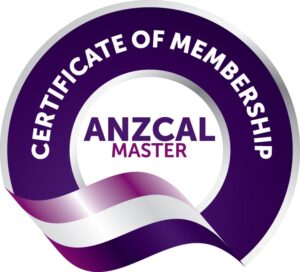
Unless you have been hibernating on a remote islet, off-grid and digitally disconnected from social media platforms, you will know there is a global sense of general discontent with our democratically elected leaders across the socio-economic spectrum i.e. public, business, political, international, national, local; as well as a growing contempt and intolerance for diversity and difference, for ideas that we don’t agree with and for people who differ from us culturally, ethnically, linguistically, religiously, politically and so on.
We live in an era where we are the most virtually “connected” to each other than we have ever been at any time in history, and yet, there is an increasingly unsustainable disconnect between leaders and the people they lead; an increasing discontent and dissatisfaction with the status quo; evidenced by keyboard warriors in digital cyberspace, and demonstrated in the real world by social movements, uprisings and protests erupting in every corner of the globe. Why is it that as we have become more and more connected to each other digitally, we have simultaneously become more and more disconnected to each other in reality? Why the contradiction? What has gone wrong?
The reasons will be complex, and there is no single, simple answer, but perhaps there may be a clue or two to be found in how our brains are wired for social connection, which is not the same thing as social connectivity through digital platforms (yes, there is a huge difference…let’s not fall for this ruse that they mean the same thing).
Digital ‘social connectivity’ – a disruptive innovation – exploits our basic need for social connection. Manipulation of the various neurosciences enabled the designers of social media, artificial intelligence (AI) and other technologies; to make us dependent on the platforms they created, by taking advantage of our desire for social connection.
Digital anthropologist and thought leader, Brian Solis, whose work focuses on research that humanizes the relationship between disruptive innovation and its impact on society, is of the opinion that “social media has warped people’s sense of self-esteem and identity, making them depressed and lonely because they can’t live up to the fictitious lives they post or view online”. In losing our identity, have we also lost our way? Or should that be, in losing our way, do we also lose our identity?
According to the works of Lao Tzu, who lived in 6th Century BC, we lose our way and things go wrong when we forget virtues such as simplicity, authenticity, wisdom, humility, duality, wu wei (non-action, non-violence, non-contention, non-intention), and omnipotence to name a few. Although we refer to these teachings as philosophy, I think the ancient sages knew a thing or two about neuroscience and everything else under the sun. I think they inherently knew what mattered most. Like empathy, for example.
Empathy is a most important interpersonal social skill and develops through our interactions with others. Empathy involves interpreting what other people are feeling (emotions) and working out the appropriate way to respond. The more we are exposed to these interactions, the better we become at interpretation and response. We learn this naturally from birth, when we rely predominantly on non-verbal communication cues, ‘mirror neurons’ and ‘micro-expressions’ to understand the social world around us.
Mirror neurons are activated through observation and imitation of others. For example, when we see or hear someone laughing, we laugh too. When we see someone physically hurt and crying, we reflect their behaviour by crying too. Laughing while someone is crying, is not an appropriate response, and would demonstrate a lack of empathy. So, even though we are not physically hurt ourselves, our tears mirror their tears and show them that we ‘feel’ their pain on an emotional level. Likewise, the injured person is soothed and comforted by recognising the non-verbal emotional message conveyed in our ‘mirror’ behaviour, which seems to say “I am with you. You are not alone in your pain.” Through this interpersonal process we develop empathy, the ability to ‘stand in someone else’s shoes’, to imagine how they must feel, and to work out the best way to respond and ensure social connection.
Micro-expressions are fleeting, involuntary facial expressions that reveal our true emotions even when our words might be saying something else, in an attempt to hide what we really feel. Micro-expressions are so fleeting that they are often missed by others. Building ‘intuition’ and increasing awareness of self and others, occurs during the process of these subtle interplays, through our own face-to-face interactions and through observing interactions between other people sharing our physical space. When interacting face-to-face with others – our ability to perceive, understand, and respond to the experiences of others is facilitated and fine-tuned through the development of empathy.
The key difference between social connection and social connectivity is the role that empathy plays. Humans are spending less and less face-to-face time with each other (social connection), and more and more time engaging with each other digitally, on social media platforms (social connectivity). This engagement with technology is limiting our opportunities to develop neural pathways through the subtle, yet important information we gather through mirroring or imitation, and through reading fleeting facial expressions – all essential for the healthy development of empathy. It is no wonder that we are becoming less tolerant of each other, and more socially divided. Tristan Harris, founder of the Center for Humane Technology has said that social media designers “had the power of Gods without the wisdom, prudence, and compassion of Gods. They designed without actually understanding what the net effect of this would be.” He should know…his bio states that he “has spent his career studying how today’s major technology platforms have increasingly become the social fabric by which we live and think.”
For those amongst us who may ask, “but how can I, as one person, stop the threads from unravelling and begin to repair the social fabric that is fraying around the edges?” The truth is, I don’t know. Finding one quick-fix answer to a complex societal issue (one of many) involves a can and some worms….as well as a visionary approach to releasing and herding worms. I think we can make a start though, by following the guidance from great poets and philosophers like Lao Tzu, and by recognising that each and every one of us is part of the problem and therefore, each and every one of us is part of the solution. In a digital era, now more than ever, it takes a global village to raise empathetic planetary citizens, Earthlings who care.
| The Whole is in Each Part (words by Lao Tzu)
Whatever is planted deeply is not easily uprooted. Whatever is embraced sincerely does not crave escape. Ever since we lost our intuition as our main guide in life, These virtues have had to be consciously cultivated to survive. Cultivate them in yourself and they will be genuine. Cultivate them in your family and they will flourish. Cultivate them in your community and they will be long lasting. Cultivate them in your country and they will be widely propagated. Cultivate them in the world and they will certainly become universal. In this way, you will know others by what you do yourself. You will know families by what they contribute as a family. You will know the world by what you do as a planetary citizen. How do we know all this? Because we know that each part is in the whole, and the whole is in each part. |
© Gaynor Clarke, May 2021
(2002). The Tao Te Ching. Original work by Lao Tzu (6th Century BC). (R.A.Dale, Translator). London, Great Britain: Watkins Publishing.
Gaynor is a teacher educator and mentor facilitating personal & professional leadership wellbeing outcomes for teachers.
If you are an early childhood teacher or leader looking to enhance your leadership skills, I would love to work with you. As a leadership mentor and coach, I specialize in helping early childhood educators develop their leadership potential and make a positive impact for the ākonga they serve. If you are interested in learning more about my leadership mentoring services, please visit my website or contact me directly to schedule a consultation. I would love to work with you!
Reach. Teach. Lead.
Reach Education Ltd








Leave a Comment
You must be logged in to post a comment.